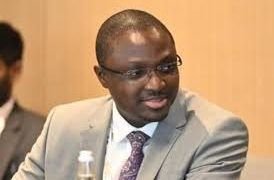Ghana: Investor Perception Still Not Favourable Despite Ongoing Reforms – Dr Theo Acheampong
Investor sentiment towards Ghana remains unfavorable despite the change in government and the implementation of economic reforms, Petroleum Economist and Political Risk Analyst, Dr. Theo Acheampong, has said.
Speaking during the NorvanReports and Economic Governance Platform (EGP) X Space discussion on the topic, “Ghana’s Investment Pitch: Are We Ready to Compete in the Global Market for Fresh Investments?”, Dr. Acheampong noted that investors are still cautious about committing capital to Ghana due to past economic challenges, particularly the country’s debt restructuring program.
“Basically, they welcome the change in government and the economic agenda that they want to implement. But the perception is still not one that is the most favorable,” he said.
He explained that many investors suffered financial losses due to the government’s debt restructuring and the accompanying haircuts on sovereign bonds. Additionally, investors in the energy and extractive sectors have faced significant challenges, including tax disputes and issues related to unitization policies.
“These issues have created, in my view, a relatively negative perception of the country in the last one and a half years. In my engagement with many of these investors, certainly what they are looking for is to see the extent to which the new administration will address these challenges,” he added.
While acknowledging some early positive signals from the new administration, Dr. Acheampong stressed that Ghana must take concrete steps to restore investor confidence, particularly by improving oil production and addressing macroeconomic challenges.
“The oil production in Ghana is abysmally low. We should have been doing close to 500,000 barrels a day now, but we’re barely doing 130,000 or so barrels a day. Because of the challenges many investors had with the prior government, it has made it difficult to sell the message of what the new government is trying to do,” he stated.
Portfolio vs. Foreign Direct Investment
Dr. Acheampong further distinguished between portfolio investors and foreign direct investors, noting that while portfolio investment appetite remains moderate due to favorable coupon rates, foreign direct investors are hesitant due to concerns over the business environment and taxation policies.
“For portfolio investors, our sovereign risk profile is actually improving off the back of our resumption of debt servicing and restructuring efforts. However, for FDI investors, they are ready and willing to commit but are waiting to see a bit more push from the government,” he said.
According to him, the outcome of the 2025 budget has been received positively, but investors still seek assurances regarding expenditure control and macro-fiscal stability.
Natural Resources and Energy Sector Challenges
Commenting on the country’s natural resources, Dr. Acheampong stressed that Ghana must leverage its vast mineral wealth, particularly in transition minerals like lithium, graphite, and bauxite, to attract investment.
“There are huge opportunities on the mining side for us to leverage on our transition minerals. The problem with bauxite, for instance, is that we need a refinery solution. We have a smelter, but it needs massive upgrades and significant electricity input to be competitive,” he explained.
He also emphasized the need for regulatory certainty and a technocratic approach to decision-making in the oil and gas sector.
“What many investors want is regulatory certainty. They want decisions to be made on a technocratic basis, devoid of politics. We want to promote local champions and support local content, but let’s use the right approach,” he concluded.
As Ghana seeks to position itself as a favorable investment destination, the government will need to address these concerns to attract sustainable foreign investment in key economic sectors.








